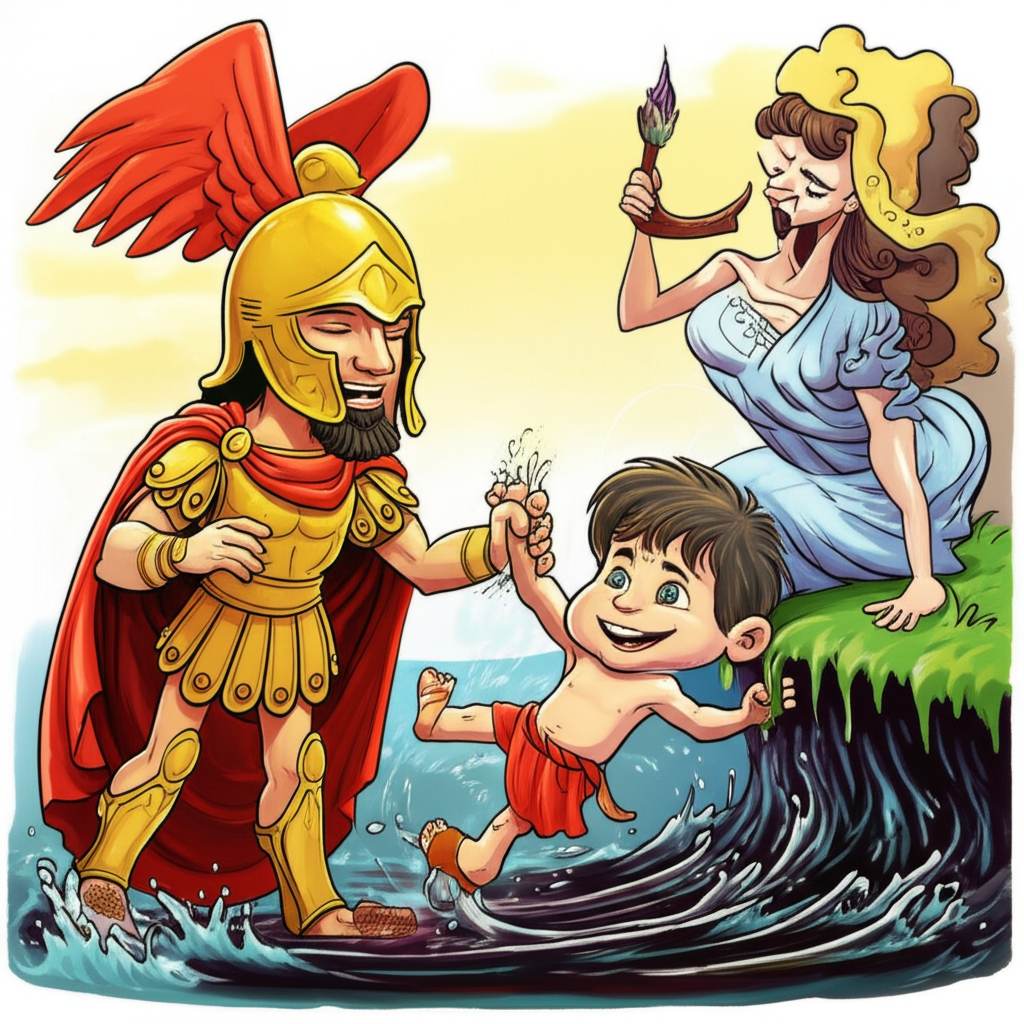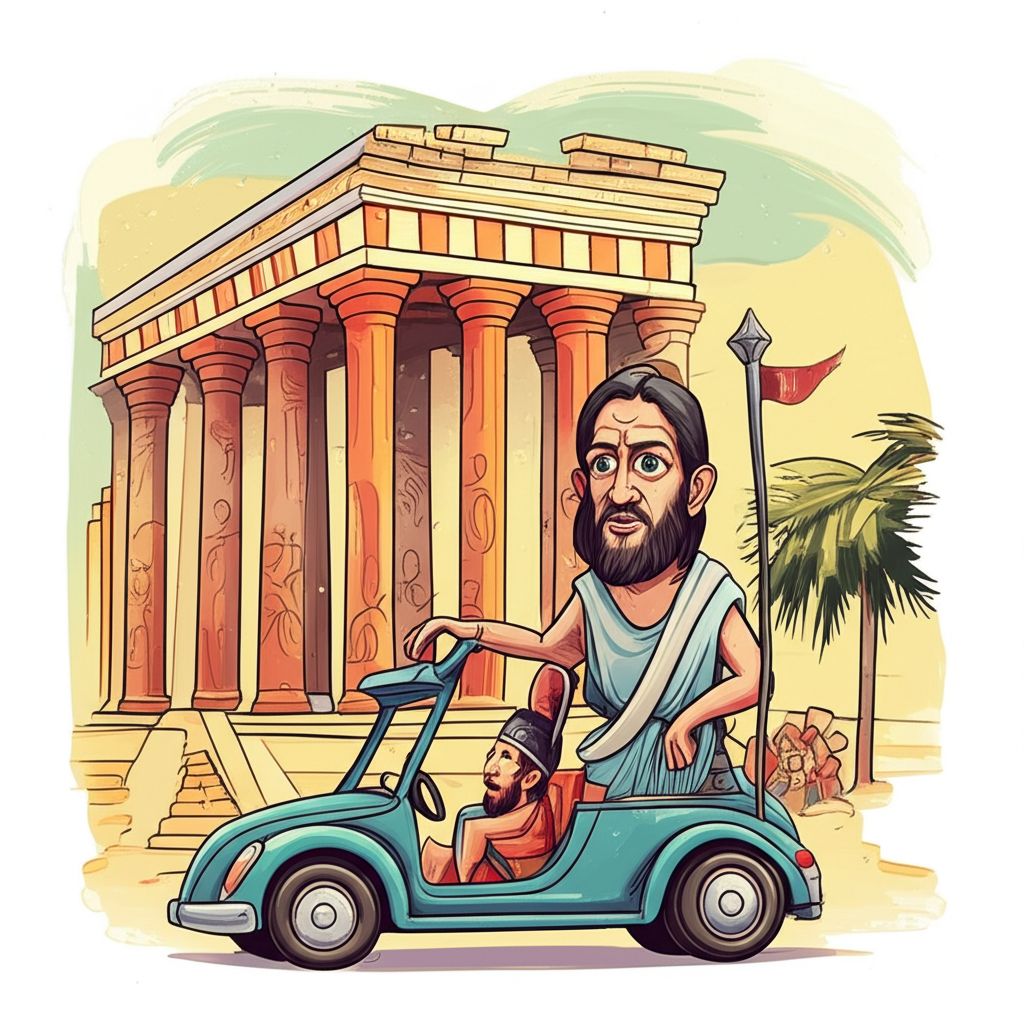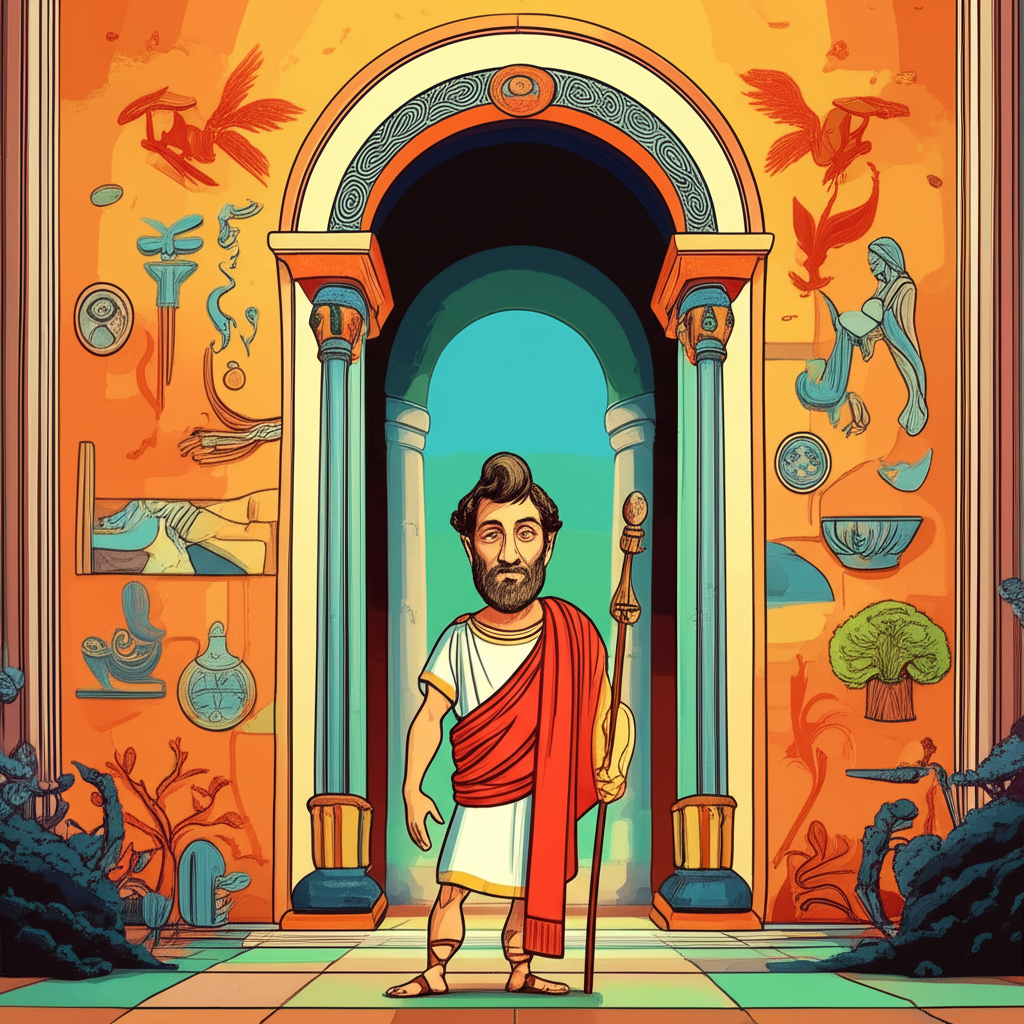
Across the sun-drenched landscapes and wine-dark seas of ancient Greece, a rich tapestry of myths and legends was woven, passed down through generations by bards and storytellers. These narratives, born from a deep-seated human need to understand the world, the cosmos, and the very essence of existence, provided explanations for natural phenomena, moral compasses, and heroic ideals. Among these tales, the story of Achilles, the greatest warrior of the Trojan War, and his legendary invincibility, stands out as a potent symbol of human aspiration and the ever-present specter of mortality. This is not a testament to divine power, but a profound exploration of human vulnerability, a story told by ancient peoples to grapple with the complexities of life and death.
The myths of ancient Greece emerged from a civilization that thrived between the Bronze Age and the Hellenistic period, a society deeply connected to the natural world and its unpredictable forces. Their understanding of the universe was often anthropomorphic; gods and goddesses embodied the elements, human emotions, and cosmic principles. This worldview shaped their stories, imbuing them with a sense of the divine interacting directly with the human realm. Life was often seen as a precarious dance between fate and free will, and heroes were individuals who, through extraordinary courage and prowess, challenged the boundaries of what was thought possible. The environment, with its towering mountains, churning seas, and fertile plains, was a constant presence, often personified in their deities and influencing the very fabric of their narratives.
Central to the tale of Achilles’ invincibility is the mythical river Styx. This is not a place of gentle currents, but a formidable, shadowy waterway that formed the boundary between the world of the living and the realm of the dead, the Underworld. The Styx was not a creature in the conventional sense, but a powerful, almost elemental force, presided over by the stern goddess Styx herself, a primordial deity representing oaths and dread. The river itself was imbued with a potent, almost magical property, its waters believed to grant an unparalleled, albeit dangerous, form of protection. It symbolized the ultimate commitment, the unshakeable vow, and the terrifying finality of death.
The narrative of Achilles’ trial at the Styx, as recounted in ancient lore, begins not long after his birth. His mother, the sea nymph Thetis, desperately sought to protect her son from the fate she foresaw – a short, glorious life destined to end in war. Driven by maternal love and a desire to bestow upon him an advantage no mortal could possess, Thetis took the infant Achilles to the banks of the Styx. Here, in the ethereal twilight where the mortal world brushed against the underworld, she performed a ritual of immense significance. Holding her son by his heel, she dipped him into the dark, forbidding waters of the river.
The Styx, in its mythical essence, was a river of such potency that its waters were said to render anything they touched impervious to harm. As Thetis submerged her son, the river’s dark magic was intended to wash over him, forging him into an unbreakable warrior, a living weapon against any foe. The water, cold and heavy, would have felt like a shroud, a baptism into a state of near-divine resilience. The image of the infant Achilles, his tiny body held aloft by his mother, his heel the only part of him not kissed by the Styx, is a powerful and enduring one. It was this single point of vulnerability, this one unshielded part, that would ultimately define his destiny.
With this transformative trial complete, Achilles was indeed reborn, not literally, but metaphorically, as a warrior of unparalleled might. His strength was legendary, his speed unmatched, his courage a blazing fire that inspired his comrades and terrified his enemies. He became the linchpin of the Achaean army, the terror of the Trojans, a figure who seemed to bend the very rules of combat. His name became synonymous with invincibility, a whispered legend on the battlefield. Yet, the story of the Styx was a constant, silent reminder of the fragile thread upon which his supposed invincibility hung.
The symbolism inherent in the tale of Achilles and the Trial of Styx is rich and multifaceted. For the ancient Greeks, the Styx represented the ultimate boundary, the point beyond which mortal existence could not trespass unharmed. The act of dipping Achilles into its waters can be seen as a metaphor for the desire to transcend human limitations, to cheat fate, and to achieve a form of immortality through earthly prowess. The single vulnerable heel, however, serves as a profound commentary on the illusion of absolute invincibility. It highlights that even the greatest of heroes, or the most fortified of defenses, can harbor a hidden weakness, a point of susceptibility that can be exploited. This narrative explored themes of maternal love and sacrifice, the pursuit of glory, the inevitability of death, and the inherent paradox of seeking absolute protection in a world defined by impermanence. It spoke to the anxieties of a society that both revered and feared the power of fate.
In the modern world, the myth of Achilles and his vulnerable heel has permeated our cultural landscape. The term "Achilles’ heel" has become a common idiom, used to describe a singular weakness in an otherwise strong individual, organization, or system. This story continues to be retold and reinterpreted in literature, film, and video games, often as a cautionary tale about hubris or the dangers of seeking to escape mortality. Literary scholars analyze its themes of heroism, fate, and the human condition. In popular culture, Achilles remains a powerful archetype, a symbol of flawed perfection, and his story continues to resonate, reminding us of the enduring human fascination with the struggle against mortality and the search for enduring strength.
It is crucial to reiterate that the story of Achilles and the Trial of Styx is a traditional narrative, a product of the imaginative storytelling of ancient peoples. It is a tale that offers insights into their worldview, their fears, and their aspirations. As Muslims, we recognize that only Allah (God) is the true Creator and Sustainer of all existence. Our understanding of power, protection, and destiny is firmly rooted in our faith. Yet, we can still appreciate these ancient narratives for their cultural significance, their literary merit, and the universal human themes they explore. The enduring power of such stories lies not in their literal truth, but in their ability to spark imagination, to provoke thought, and to connect us to the vast and varied heritage of human storytelling. They serve as a reminder of the rich tapestry of human culture and the timeless human quest to understand our place in the universe.




